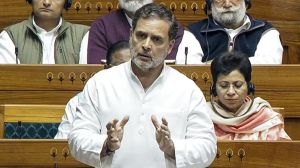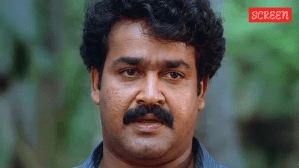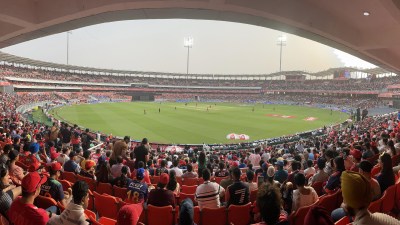Questioning the probe agencies if there was “any independent data” to show “any incriminating evidence” against BRS leader K Kavitha and also on the “fairness” of the investigation by relying on the statements of some accused who had become approvers, the Supreme Court granted her bail Tuesday in the CBI and ED’s cases of alleged corruption and money laundering linked to the Delhi excise policy.
Making clear that it was not saying anything on the merits of the cases, the bench of Justices B R Gavai and K V Viswanathan, while hearing Kavitha’s appeal against the Delhi High Court order denying her bail, said the High Court had “totally misdirected” itself “while denying the benefit of proviso” in section 45(1) of the Prevention of Money Laundering Act.

It said “perusal of the proviso shows that it permits certain categories of accused including women to be released on bail without the stringent requirement under Section 45 to be satisfied”.
In its order, the bench said that the investigation has been completed and her custody is not necessary for the purpose of the probe.
Noting that “the appellant is behind bars for the last 5 months”, it said “taking into consideration that there are 493 witnesses to be examined and 50,000 documents to be considered, the likelihood of the trial being concluded in the near future is impossible”.
Referring to its judgment granting bail to former Delhi Deputy Chief Minister Manish Sisodia in the excise policy case, it said “as observed” by it in that matter, “undertrial custody should not turn into a punishment”.
Later, emerging from the Tihar Jail, Kavitha said, “We will fight it out legally. We will fight it out politically. We were always tough. By sending us to jail illegally, they have only made the BRS and KCR’s team unbreakable. Jai Telangana. Jai Hind.”
Story continues below this ad
During the hearing, the bench questioned the “fairness” of probe agencies relying on the statements of some accused turned approvers. “Prosecution has to be fair. A person who incriminates himself has been made a witness. Tomorrow you pick up anyone as you please? You cannot pick and choose any accused. What is this fairness?” Justice Gavai asked.
Justice Viswanathan said “approvers’ statements also need corroboration”.
Opposing Kavitha’s bail plea, Additional Solicitor General S V Raju, appearing for the ED, said that when summoned, it was discovered that her phone had been formatted to erase all call records.
Justice Viswanathan said, “Phone is such a private thing, would anyone share the details with anyone? People delete messages. I have the habit of deleting group messages. These school and college groups post many messages. Let us see normal human conduct. Anyone in this room would do.” But Raju said what was done was formatting of the entire data which amounts to destroying evidence.
Justice Viswanathan wondered whether that alone can lead to infer criminality. Asking if there is “any independent data to show that there was any incriminating evidence”, he said “otherwise this would only show that the cell phone was formatted”.
Story continues below this ad
Raju said, “There are other evidence from other phones which corroborate that she has done this (formatting) to conceal.”
Pointing out that the date of the message with the co-accused was October 27, 2020, Justice Viswanathan asked when did the liquor policy come into effect.
When Senior Advocate Mukul Rohatgi, appearing for Kavitha, said the policy was for the year 2021-2022, Raju said the discussions took place in 2020 itself.
Rohatgi said “there is no other evidence apart from these tainted statements of the approvers” to implicate his client.
Story continues below this ad
The bench was critical of the High Court single judge order which refused to extend the benefit of PMLA Section 45 (1) to Kavitha.
It said “the order of the single judge which denies special treatment to the present appellant… comes to a heartening conclusion that the appellant is a highly qualified and well accomplished person having made significant contributions to politics and social work. The court observed that while deciding bail application, it cannot lose sight of the severe allegations levelled by the prosecution and evidence collected during the course of the investigation”.
“The learned single judge goes on to observe that the present applicant cannot be equated to vulnerable women. The single judge observed that the proviso to section 45 is applicable only to vulnerable women,” it said.
The bench said the “single judge totally misapplies the ratio laid down by” it and what has been laid down is that “courts need to be more sensitive and sympathetic towards the category of persons included in the first proviso to Section 45 and similar provisions in the other Acts”.
Story continues below this ad
“This court observed that persons of tender age and women who are likely to be more vulnerable may sometimes be misused by unscrupulous elements and made scapegoats for committing such crimes. No doubt that the court observed that nowadays educated and well placed women in the society engage themselves in commercial ventures and enterprises and advertently or inadvertently engage themselves in illegal activities. The court therefore put a caution that courts while deciding such matters should apply judicial discretion… the court does not say that merely because a woman is highly educated or sophisticated, or an MP or MLA, should be denied the benefit of Section 45 proviso,” the bench said.









